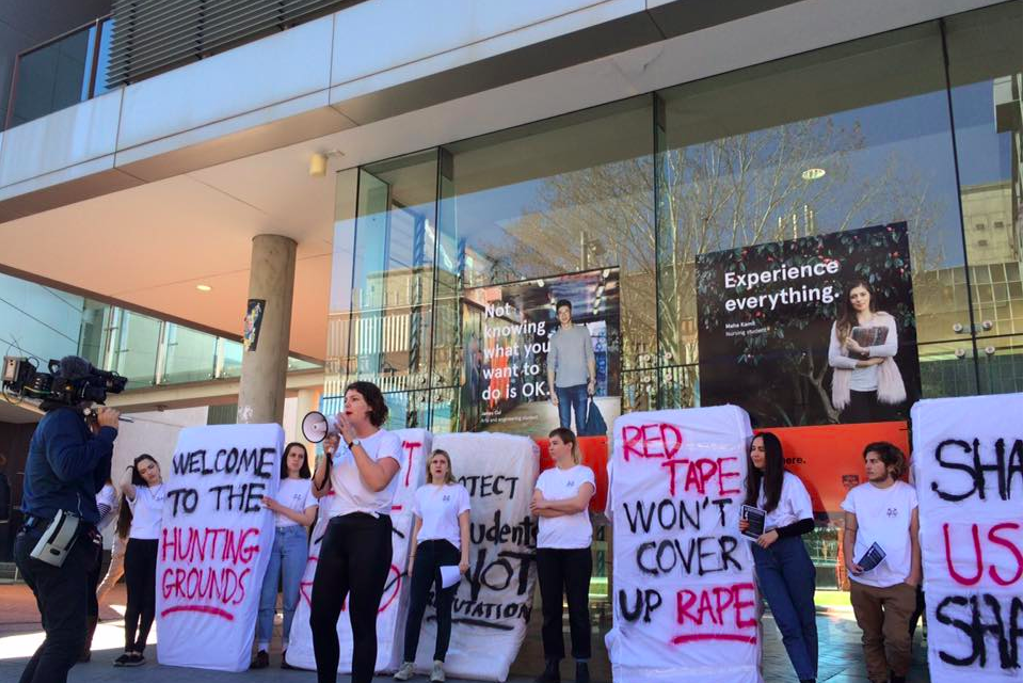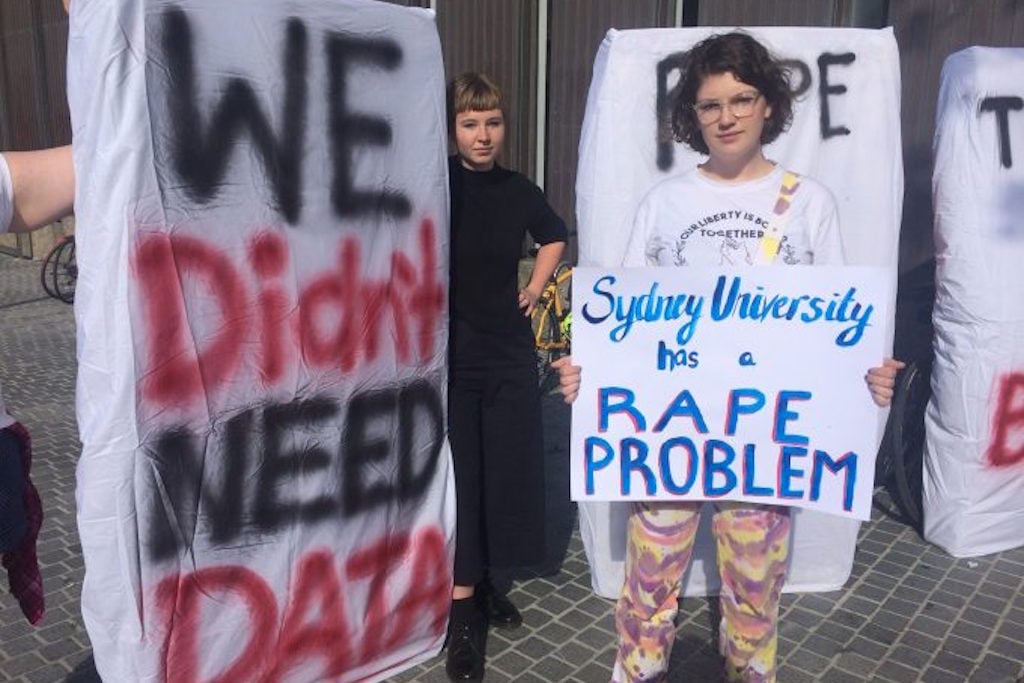Experts Say The #ChangeTheCourse Report On Campus Sexual Assault Likely Understated The Problem
The lack of behavioural questions was "surprising", and seems to go against established best practice.
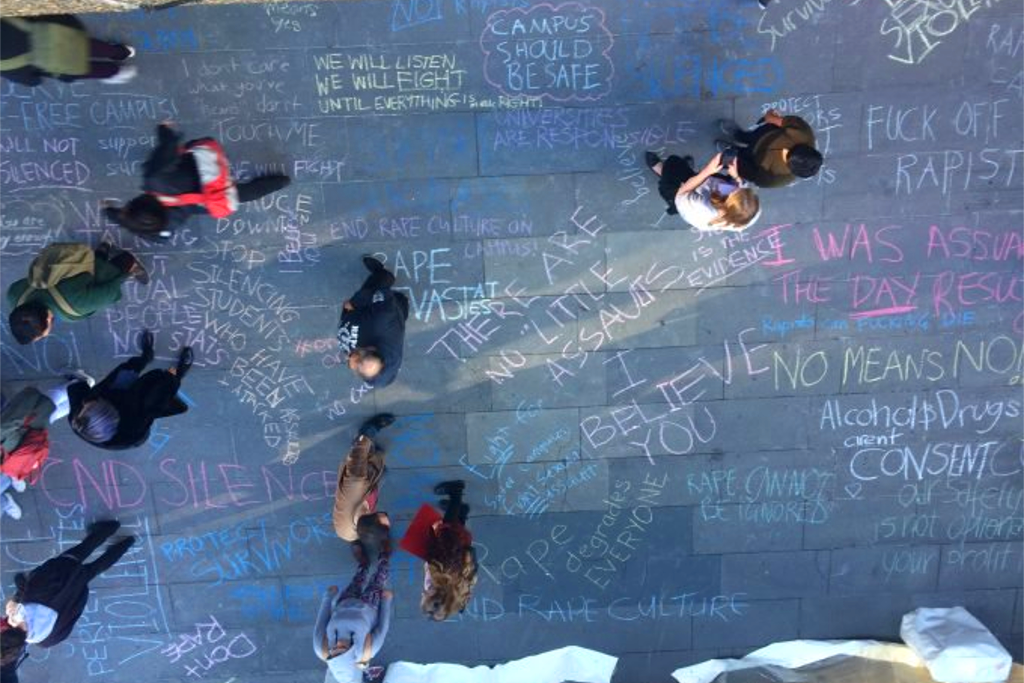
This article discusses sexual assault.
–
Experts on sexual assault research have criticised the methodology behind last week’s Australian Human Rights Commission (AHRC) report on sexual harassment at Australian universities, saying the way the survey was designed almost certainly contributed to underreporting of sexual assault.
The report found that 51 percent of Australian university students were sexually harassed at least once in 2016, and that 6.9 percent of students were sexually assaulted at least once in 2015-16 (the figure rises to 10 percent when looking just at female students). It’s this latter figure that the report’s critics are concerned is an underrepresentation.
While the academics Junkee spoke to agreed that the report was an important first step, and cautioned against dismissing its results out of hand, they nonetheless expressed surprise that the survey did not include more specific behaviourial questions on sexual assault.
Behavioural questions — which were included in the survey’s section on sexual harassment but not the section on sexual assault — ask respondents if they have experienced specific behaviours that constitute sexual assault, rather than simply asking respondents if they have been sexually assaulted.
Australian sexual assault researchers Dr. Bianca Fileborn and Dr. Anastasia Powell, as well as End Rape On Campus ambassador Nina Funnell and several student advocates pointed Junkee to research that clearly indicates asking behavioural questions is considered best practice in surveys on sexual assault, for a number of reasons including poor community understandings of the legal definition of sexual assault.
The AHRC has defended its omission of behavioural questions on sexual assault by saying it received advice that such questions would be too distressing for respondents, especially in an online format where researchers cannot gauge respondent distress.
The Commission declined to identify the specific experts who provided this advice, and would not comment on whether survey designers were aware of research to the contrary, including a landmark study by the United States Bureau of Justice Statistics released last year. That study specifically recommended behavioural questions be used in surveys of campus sexual assault.
What Are The Experts Saying?
“The research evidence over many years has demonstrated the need to ask specific behavioural questions about experiences of sexual assault,” said Dr. Anastasia Powell, a Senior Research Fellow at RMIT whose research focuses directly on sexual assault.
“There are actually really poor community understandings about what constitutes a sexual assault. Many in the community, for example, still believe that unless a person clearly says no to sex and physically resists, that it’s not a crime if someone were to persist to have sex with that person.”
“And in fact, that’s plainly wrong in the Australian context, though it varies internationally. But here, in most definitions of sexual offences, there’s a requirement that consent is active and freely given.”
HRC survey is very useful. But it's also got three significant weaknesses. Likely to underreport violence #ChangeTheCourse @AusHumanRights pic.twitter.com/9RH3Whx3Ic
— Michael Flood (@MichaelGLFlood) August 1, 2017
Dr. Powell also noted that the names for sexual offences vary across Australian states and territories, causing further potential confusion about terminology. Offering the survey in English alone also potentially compounded the chance for misunderstanding amongst international students.
“We also know, from the Australian National Community Attitudes Survey on Violence Against Women, that young adults in particular actually have poorer recognition and understanding of sexual assault than do older or middle aged Australians,” she said.
AHRC survey only available in English – may have prevented some int'l students from reporting their experiences #ChangetheCourse
— anna hush (@_annahush) August 1, 2017
“We know that there’s going to be many people who have experienced sex that they did not freely and actively agree to, and feel traumatised by that experience, but don’t actually recognise that what happened to them may have been a crime.”
Dr. Bianca Fileborn, a lecturer in Criminology at UNSW, took a similar position. “Typically people assume that sexual assault has to be the most serious thing, that it has to be a stranger jumping out at you out of a dark alley, that it has to involve violence or force, or whatever — all those kinds of myths and stereotypes around sexual assault,” she said.
“We know that that is not best practice for asking people in surveys if they’ve been sexually assaulted — it’s not an accurate way of determining whether someone’s been sexually assaulted or not.”
“We know it’s better to provide descriptions of behaviour, so instead of saying have you been sexually assaulted, it’s much better to say something like ‘have you had sex when you didn’t want to?’, or ‘have you had sex because you felt too afraid to say no?’, or ‘has someone had sex with you when you were unconscious or too drunk to know what’s happening?’”
What About The Commission’s Concerns About Respondent Distress?
While the experts we spoke to acknowledged the importance of avoiding respondent distress in surveys on sexual assault, they also said the research is pretty clear on the need for behavioural questions.
“To be honest, I’ve never seen anything suggesting otherwise,” Dr. Fileborn told Junkee. “And I actually think it’s problematic, potentially more harmful in the longer term, if you’re asking questions that lead to an undercounting, because as we’ve already seen we have idiots coming out and saying look, it’s not actually that bad, and we don’t need to worry about this. That’s usually damaging.”
The harm has been done anyway! Ugly Qs are hard indeed but if you dont ask about the ugly, you wont know about it. Underreporting is worse. pic.twitter.com/nLHR29sdCE
— Aurélie Pankowiak (@AureliePanko) August 1, 2017
Dr. Powell went a step further, pointing out that survivor distress can actually be caused by not including behavioural questions.
“There are a whole range of ethical concerns when you’re conducting any social research, but especially research with populations that are likely to have experienced sexual violence. And I think it’s really important to bear in mind that there is also an ethical risk with misrepresenting the problem, and with underestimating the problem.”
“There is research saying victim-survivors who agree to participate in research like this are actually motivated by a desire to have their experience heard, and to have that knowledge of what happened to them actually count towards making a difference and making a change.”
“I think it’s really important to remember that there is an ethical obligation to make sure we’re doing justice to the experience of victim-survivors of sexual violence.”
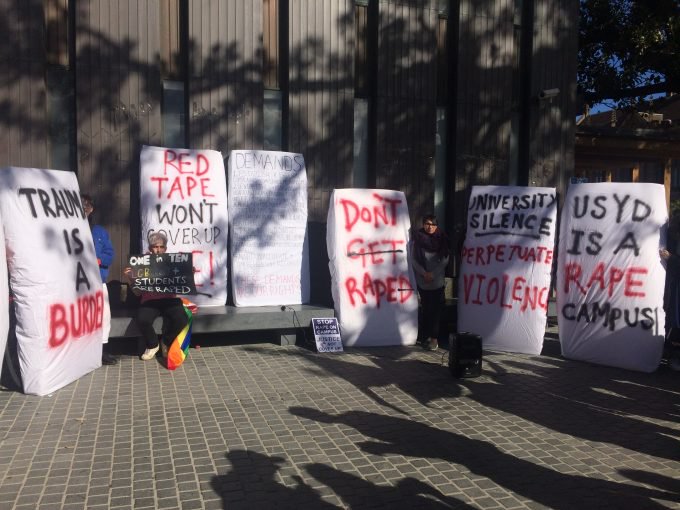
Both academics suggested that the potential for behavioural questions to be distressing can be mitigated by other aspects of survey design, such as clearly flagging the kind of content participants can expect from the outset, and encouraging them to complete the survey in safe spaces where they can access support.
As far as whether the Commission was aware of these options, End Rape On Campus ambassador Nina Funnell told Junkee that the organisation “raised these concerns [with the Commission] last year, and have been disappointed by the response”.
“Not only does the instrument violate best practice guidelines, but when these concerns were raised, they were largely ignored.”
Does This Mean We Can’t Trust The Survey Results?
In a word: no. We can and should continue to take the results of the survey seriously.
All the experts Junkee spoke to emphasised that if there’s any inaccuracy with the survey results overall, it’s likely to be underreporting, not overreporting (though the survey itself did acknowledge the possibility of some overreporting within certain demographics, for example male respondents).
Dr. Fileborn and Dr. Powell warned against pundits using important discussions about methodology to derail the purpose of the survey by suggesting it was totally invalid or an exaggeration, as some writers have posited this week.
Ping @theboltreport @theheraldsun: "That is the literal definition of sexual assault". Via @honi_soit pic.twitter.com/l1pQqDfWqn
— maani (@maanitruu) August 8, 2017
“Personally, I think it would have been better to state upfront that because of the methodology we actually know that this is the lower end estimate, and that it’s likely that the figures a higher,” said Dr. Fileborn.
“I think that would have been a much stronger position to take — that this is the tip of the iceberg.”
The Australian Human Rights Commission told Junkee that “the key finding of the national survey is that there are concerning rates of sexual assault and sexual harassment occurring in a range of university settings”.
“The rates of sexual assault and sexual harassment amongst specific population groups (including international students, LGBT students, and women) are broadly consistent with research into the rates in the general population.”
Why Does This Matter, Then?
There are two key reasons why these methodological critiques matter.
The first, as outlined by Dr. Fileborn, is that the levels of sexual assault reported by the survey have “follow-on implications for all kinds of things”.
“How do you determine appropriate levels of service provision, for example, or funding for services who work with victim-survivors, training for prevention campaigns, all those kinds of things,” she said.
“It has a lot of follow-on consequences if we’re undercounting.”
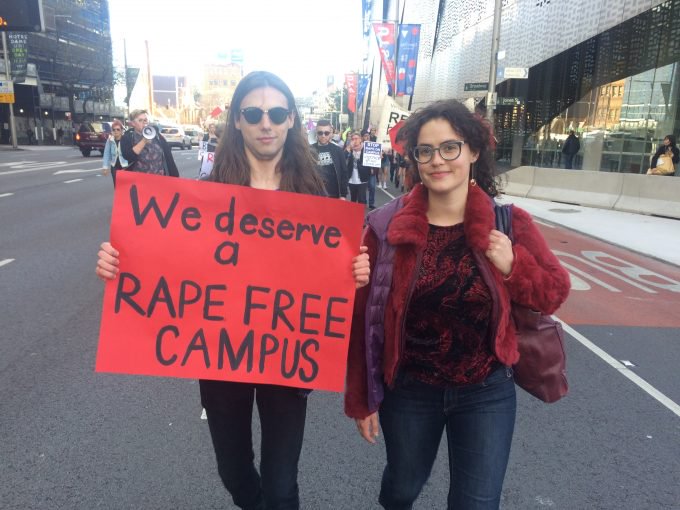
The second reason is that one of the recommendations of the AHRC report was that the survey be repeated in the future. That means now is the time to be assessing the adequacy of the instrument, and to decide whether changes are necessary.
For this reason, Dr. Powell has recently established the Consortium of Australian Sexual Violence Researchers, which already has more than 60 members from the Australian academic community. The consortium aims to ensure that expert voices are heard in the response to the report, and are able to help inform both university responses and future surveys.
Are you an Australian Sexual Violence Researcher? Join our independent response to #Changethecourse For more visit https://t.co/cJvhPk0iiH https://t.co/WiJ6Ae651D
— Dr Anastasia Powell (@Dr_AnastasiaP) August 11, 2017
“There’s a great deal of knowledge in this country on sexual violence, and many of the people I’ve spoken to, many of the academics who are specifically working in this field have said that they weren’t consulted,” Dr. Powell said.
“That’s not to say that there aren’t others who have been consulted that I have been in contact with yet, but I am concerned. That’s something myself and the members of the Consortium are really keen to put our voices forward on.”
The AHRC report lists a number of the organisations it consulted on page 28, but declined to provide Junkee with details on the specific individuals and advice it worked with.
“I think there’s an opportunity here to learn from this process,” Dr. Powell said. “We want to make sure that we are developing the best possible instrument that we can to accurately reflect the experiences of students.”
It’s this focus on the experiences of students, and supporting survivors going forward, that Dr. Powell and Dr. Fileborn want their methodological critiques of the survey to support.
“I know we’re being quite critical of [the AHRC],” Dr. Fileborn said, “but they and the activist groups and victim-survivors who pushed for this research for so long do need to be commended for actually doing it, and bringing the issue to light.”
“I think that’s really important, but now that we’ve got it out there and have this story happening, we need to be asking how can we do it better, and how can we improve?”
–
If you or someone you know is impacted by sexual assault call 1800RESPECT on 1800 737 732 or visit 1800RESPECT.org.au. In an emergency, call 000.
The National University Support Line also offers 24/7 free trauma counselling, at 1800 572 224.
Men can access anonymous confidential telephone counselling to help to stop using violent and controlling behaviour through the Men’s Referral Service on 1300 766 491.
–
Sam Langford is a Junkee Staff Writer. She tweets @_slangers.
